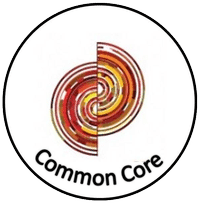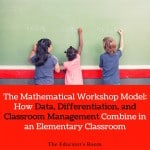![]() During my entire career, there were always standards in mathematics. Whether I was dealing with the mathematics standards of the School District of Philadelphia, the standards of the state of Pennsylvania, or the standards of the National Council of Teachers of Mathematics (NCTM), I followed some standards in the teaching of mathematics. With this as my background in using standards, I am going to share with you my feelings about the use of Common Core for Mathematics.
During my entire career, there were always standards in mathematics. Whether I was dealing with the mathematics standards of the School District of Philadelphia, the standards of the state of Pennsylvania, or the standards of the National Council of Teachers of Mathematics (NCTM), I followed some standards in the teaching of mathematics. With this as my background in using standards, I am going to share with you my feelings about the use of Common Core for Mathematics.
When I began teaching the School District of Philadelphia (SDP) provided us with a set of standards for grades 1 thru 8. There was also a test that was provided for students in each of these grades. Each section of the test could be taken as soon as a unit was finished. Mastery was achieved at 80% accuracy in each sub-test. Students were able to re-take each unit as the class moved on. The purpose of these standards and their accompanying tests was that the school district was fairly diverse at the time and not all schools used the same math texts. Many of our students moved multiple times during elementary schools so these standards would assure that all students would receive the same math education. These standards would also help all students be prepared for high school mathematics classes. One problem that did arise is that so many teachers thought that they had to go page by page in the math text that many students never got to the geometry or problem solving areas of the text or the test.
Sometime later in my career the Department of Education in Pennsylvania decided that the state needed standards in every subject so that coursework would be more uniform across the state. The original standards were written by a group that included teachers. An annual standardized test which matched the standards was devised by a group which also included teachers. These tests known as the Pennsylvania Schools Student Assessment (PSSA) would be administered in May. They included both multiple choice and open ended questions. Students were allowed to use calculators for all math sections except computation. The open ended questions were scored by a team of teachers that met in the state capitol for this purpose. When this program first started, many students scored fairly well in the open ended questions. Unfortunately, because the state had to pay the teachers who scored the tests, things changed within a few years and the testing went from being produced by the state to one produced by a text publisher. The open-ended questions were eliminated and we were back to a completely multiple choice test. I’m sure you can guess what happened – scores fell.
As you can see from these two situations, I am familiar with standards in math. What is unique about these experiences is that the standards and tests were completed with teacher input. In addition, teachers were asked for feedback, and both sets of tests were tweaked to ease some of the concerns of those in the classroom.
Let me now move on to Common Core.
Common Core was not written by teachers, which I believe is a major problem. I have reviewed the elementary and middle school standards. I found that the middle school standards are very similar to the standards I have mentioned above. My concerns lay with the elementary standards. The kindergarten standards assume that all states require that students attend kindergarten which is not true. Six states, including my home state of Pennsylvania, do not require kindergarten. Only eleven states require full day kindergarten. What happens to children in those states where there is no kindergarten or only half day kindergarten? Does this mean that the first grade teachers are then responsible for teaching both kindergarten and first grade standards? Or will students in these states simply struggle with first grade math? As far as grades two through four, I found two issues of concern. First, are all of the math standards for these grades developmentally appropriate? Second, does the number of standards per grade allow teachers to do hands on activities to help students understand the concepts being taught?
I see nothing wrong with the idea of Common Core standards if the following things are part of the process:
1. The standards should be tested and teacher feedback should be used to make any necessary changes.
2. Parents need to receive information on why Common Core is being implemented. They should also have resources available to them so that they can follow assignments that are being sent home.
3. Teachers using the standards should be part of the development of testing materials to be used to evaluate the standards.
4. Common Core testing should be done near the end of the school year and results should be used to constantly re-evaluate the standards.
In the end, standards can be important to improve education but standards over the years have failed when high stakes testing and teacher evaluation are linked to standards. The testing should be a tool to judge whether or not the standards are working for our children.




